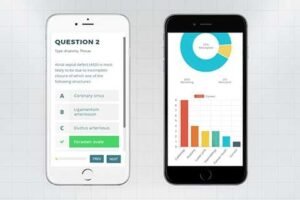Health and Care Visa: Everything you need to know
The Home Secretary and Secretary of State for Health and Social Care have announced the Health and Care Visa, creating a new fast-track visa route for eligible health and care professionals. This visa has been introduced as part of the skilled worker route of the new points-based immigration system. This will provide fast-track entry, reduced application fees and dedicated support to individuals with a confirmed job offer in defined health professions; for a skilled role within the NHS; the social care sector or for those sponsored by the NHS.
Who can apply?
The Health and Care visa has been designed to attract the best and brightest from around the world.
In order to apply, you must be a qualified:
- doctor
- nurse
- health professional
- adult social care professional
The full list of eligible professions is:
2112 – Biological scientists and biochemists
2113 – Physical Scientists
2211 – Medical Practitioners
2212 – Psychologists
2213 – Pharmacists
2214 – Ophthalmic Opticians
2215 – Dental practitioners
2217 – Medical Radiographers
2218 – Podiatrists
2219 – Health Professionals not elsewhere classified
2221 – Physiotherapists
2222 – Occupational Therapists
2223 – Speech and Language Therapists
2229 – Therapy professionals not elsewhere classified
2231 – Nurses
2232 – Midwives
2442 – Social Workers
3213 – Paramedics
(Tier 2 Policy Guidance, Paragraph A3)
You can apply if:
- you have a job offer from the NHS, an organization providing medical services to the NHS or an organization providing adult social care
- you’re from outside the European Economic Area (EEA) and Switzerland
- your sponsor has told you that you are eligible for it
What do you need?
Applicants will need to meet all relevant criteria which include:
- a valid Certificate of Sponsorship
- evidence of an appropriate salary, which meets the relevant salary threshold
- being able to provide evidence of knowledge of English language
- sufficient personal savings when arriving in the UK
- being able to demonstrate ability to travel and travel history over the preceding five years
- valid tuberculosis test results (if from a listed country)
- a criminal record certificate from any country where they lived for 12 months or more in the last 10 years, if working with vulnerable people
Employers will need to include a brief explanation in the Certificate of Sponsorship setting out how the employee will meet the Health and Care Visa requirement.
When can you apply?
The Health and Care has been made available for applicants from the 4th August.
The earliest you can apply for a visa is 3 months before your start date of work in the UK. The date you can start work is listed on your certificate of sponsorship. You should get a decision on your visa 3 weeks from the date you provide your biometric information. There are extra charges if you want a faster decision.
Immigration Health Surcharge
Those eligible to apply for this visa and their dependents will be exempt from having to pay the immigration health charge. Frontline workers in the health and social care sector who don’t qualify for the Health and Care visa will pay the immigration health surcharge but will benefit from a reimbursement scheme if they have paid this on or after 31 March. Immigration health surcharge payments by healthcare professionals on Tier 2 visas who have paid since 31 March 2020 are already being refunded by the UK government.
For health and social care staff outside the scope of the Health and Care visa reimbursement arrangements will start from 1 October in 6-month reimbursements.
(For detailed information regarding the Health and Care Visa, please visit: https://www.gov.uk/tier-2-health-care-visa)
Note: Foreign Medical Professionals will still need to pass the PLAB exam to qualify for a licence to practice in the UK.





